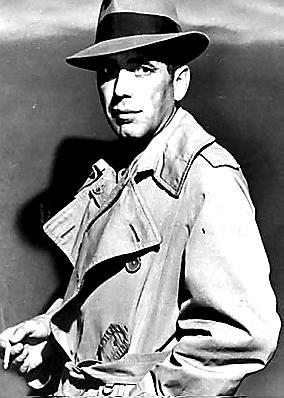The Google background check: How long can you hold this against someone?
Check this interesting piece on Deadspin last week from the world of High School sports titled 'Disgruntled Goalie Scores On His Own Net, Flips Off Coaches, Skates Off The Ice Forever. On the surface it seems like a kind of amusing, if a little sad, tale about a senior high school ice hockey goalie, feeling like he had been slighted and had unfairly lost playing time to a sophomore goalie. The senior then used the occasion of the team's last game to vent his frustration with his coaches and the situation in a classic flame-out fashion. 
I won't embed the video here, or mention the goalie's name - both can be found at the Deadspin piece, but in case you don't have time to check the footage (you do, it's literally about 12 seconds), here is the gist of what went down:
With three minutes remaining, and Farmington up by one, (he) corralled the puck behind the goal. The video picks up there as he skates it in front and casually slips it into his own net. He sends a middle finger to his bench, fires off a salute, and skates back to the locker room. The game was tied, and Farmington—with a third-string goalie in net, the sophomore was out with an injury—would concede another goal a minute later to lose.
You can certainly chalk up the senior's demonstration/protest/tantrum to a youthful indiscretion and an immature way to express his anger. Sure, he was wrong to put the puck in his own net, he was wrong to flip off the coaches, and he was wrong to put himself above the team in that way. Whether or not he was a better goalie than the sophomore really isn't important here, but for anyone that has been in that kind of situation, you can at least feel for the kid's point of view.
Again, in the end, it's really just a kid acting out inappropriately, like most kids will do at least once in a while, and that most of us probably did ourselves when we were that age. No big deal really, it was only a silly hockey game, and the kid will learn his lesson, (or maybe he won't), and everyone will move on and forget.
But I wanted to call it out on the blog this week, after having a quick scan through the 75-odd comments on the Deadspin piece, and noticing at least a half dozen comments similar to this one from someone named 'Loose Cannon':
/Googles '(the kid's full name)'
//discards resume, moves on
- Hiring Managers
Again, I'm leaving out the kid's real name, as I think as evidenced by the comments from 'Loose Cannon' and several others he is never really going to be able to erase this incident from the interwebs. No matter what he goes on to in his life, a Google search for his name, like many, many Recruiters and hiring managers will execute, will bring up these words and images that show immaturity, selfishness, and lack of respect for authority.
But I kind of feel bad for the kid. Not because of what 'Loose Cannon' thinks, (I have a feeling he isn't hiring anyone anytime soon), but rather for the fact that this episode is going to trail him for a long, long time - maybe forever.
I know I did some stupid things back in the day, things I would not want my potential next boss to read about it in detail.
Our young goalie friend here doesn't have that option now.
Let's hope the HR person or recruiter that does the first Google search on him in a few years can empathize.
It will help if he or she was also brought up in the YouTube age I think.

 Steve
Steve

